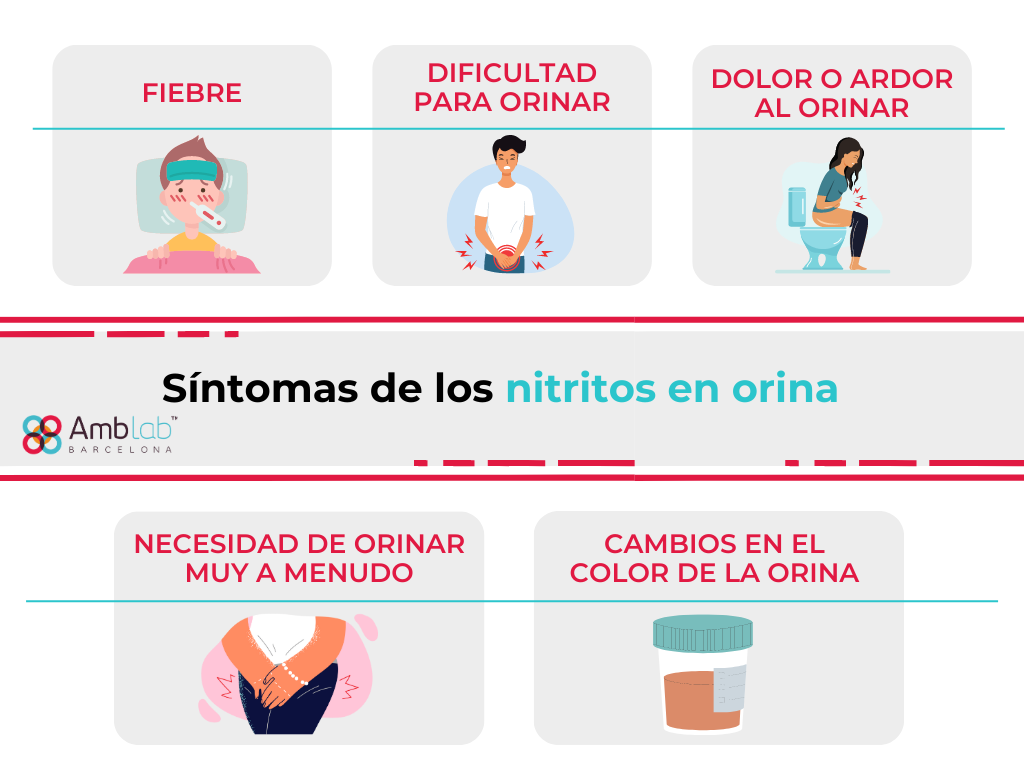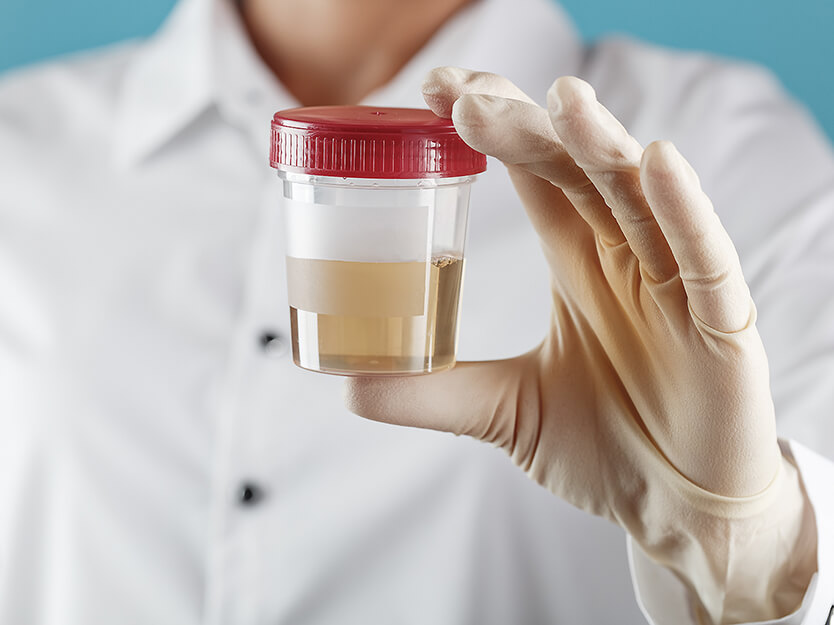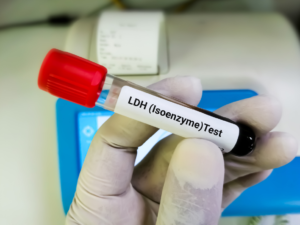Urine tests are one of the most common tests when a patient feels discomfort, especially pain when urinating, fever or a change in urine color, it can help determine if the patient has nitrites in urine. It can also give us a lot of information about a person’s state of health, as the doctor usually asks for it as part of a routine check-up or together with a blood test.
If the test confirms that nitrites appear in urine, there is a good chance that the patient has some type of bacteria in the urinary tract and is suffering pain or discomfort as a result. Nitrites, therefore, are markers that something serious is happening internally. That is why prevention and timely testing are so important and are considered almost routine. Today we will focus on the presence of nitrites in urine, what they indicate and what is the treatment.
What are nitrites?
Nitrites are an abnormal presence in urine. They are the result of the degradation of nitrates, mainly present in vegetables and greens. Through urine, the body expels everything it does not need, including nitrates. If they are found with bacteria in the urinary tract, they are transformed into nitrites, so their presence in the urine indicates a urinary tract infection.
We have already mentioned that vegetables are the foods with the highest amount of nitrates. The WHO establishes not to ingest more than 3.7 milligrams per kilogram of a person. If a person does not have bacteria in the urinary tract, nitrate intake should not be a problem.
Attention should also be paid to other foods that directly contain nitrites, such as potassium nitrite or sodium nitrite, which are used to artificially increase the red color of meat. Consuming large quantities of foods that directly carry nitrites can be harmful to health, so it is advisable to read labels and reduce the consumption of these foods because, whether or not they carry nitrites artificially, they are not the most recommended for a balanced diet.
The bacteria that cause the most urinary tract infections are:
- Escherichia coli.
- Enterobacteriaceae.
- Proteus mirabilis.
- Enterococcus.
It should be noted that, although some bacteria can cause infections (including those just mentioned) if they take the nitrates we excrete in our urine and convert them into nitrites, not all of them are capable of this process.
Are nitrates and nitrites safe?
Nitrates are part of our diet and we consume them in a wide variety of foods (spinach, lettuce, chard, radish…). This does not mean that we should stop consuming them, but that we should control the amount of intake.
EFSA (European Food Safety Authority) has evaluated the safety of nitrites and nitrates as food additives (in red meat, for example) and concluded that the current levels of nitrates and nitrites allowed to be added in Europe are safe for consumers. The amounts we ingest when consuming these types of foods in which nitrites are artificially added are within safe levels, so they do not contribute to health-threatening levels of nitrosamines.
However, these values are intended for an average adult without any health problems. It is not the same for a child or an elderly person. In these cases, it is best to consult the family physician and perform the relevant analyses to modify the diet if necessary.
When is the urine nitrite test performed?
As always, a timely diagnosis can help us to stop the development of an infection or health problem so that the consequences for the patient are as minimal as possible. As for the presence of nitrites in urine, some characteristic symptoms that may raise suspicions usually appear:
- Fever.
- Difficulty urinating (dysuria).
- Pain or burning when urinating.
- Changes in urine color.
- Need to urinate very often (pollakiuria).

If a patient comes to the doctor with one or more of these symptoms, the doctor will probably order a urine nitrite test, a test that is part of a complete biochemical urine test. This test is usually performed together with the leukocyte esterase test (presence of white blood cells in the urine due to infection). If both are positive, it is confirmed with almost 100% probability that the patient has a urinary tract infection.
How is the urine nitrite test performed?
When the physician requests a urinalysis, a sample of the patient’s fluid is collected. The first urine stream does not count; the second part is needed and will be placed in a container ready for analysis. It is best to collect the sample after a long period of time without urinating, for example, as soon as we wake up.
Once the laboratory has the sample, a biochemist will introduce a strip into the urine. It contains various substances that react with the components of urine and change color, indicating the presence of certain elements. These strips do not react to just one thing, but are able to detect nitrites, glucose, esterase, proteins… The color that confirms the presence of nitrites in urine is usually pink, although it may vary depending on the brand of the strip.
Results
If the presence of nitrites in urine is confirmed, a urologist or a general practitioner will prescribe to the patient, taking into account his medical history, the use of antibiotics (Amoxicillin or Ciprofloxacin) for a period of time, usually 3, 7, 10 or 14 days. It all depends on the drug used, the severity of the infection and the dose administered.
If alterations of this type (nitrites) appear without physical symptoms, it may not be necessary to prescribe any medication or treatment, since it is assumed that the body itself is capable of fighting the infection. In this case, the physician will simply want to keep track of the case and will schedule an appointment to monitor the evolution of the infection.
If nitrites are detected in urine during pregnancy, the woman should inform her gynecologist or obstetrician so that he can prescribe specific antibiotics for her condition (Cephalexin or Ampicillin). Pregnant women cannot take certain types of medications, so it is very important to consult a doctor before consuming anything. It is also necessary to take into account that, during gestation, the possibility of suffering urine infections increases, so it may be something common, but it should always be followed up.
Although a urinary tract infection is usually treated with antibiotics (if our body needs them), we can help prevent it by following a healthy lifestyle and a balanced diet. Some of the tips we recommend you to follow are:
- Avoid fried and smoked foods.
- Reduce consumption of canned foods.
- Disinfect the vegetables.
- Make water drinkable and consume regularly.
- Do not increase stomach acidity.
- Consume Vitamin C.
- Adequate intake of iron.
- Avoid alcohol consumption.
- Quit smoking.
Additional information on nitrites
If you suspect you may have a UTI because of your symptoms, you can get an infection test kit without a prescription. You can perform the test at home with the strip method explained above, capable of detecting nitrites and white cells in your urine.
This type of test is very quick and simple to use, but it is not completely reliable: the result may be negative when you may have some type of infection. Given its diagnostic limits, if you have symptoms of possible infection, it is always best to go to your family doctor for a referral to another professional or to request the necessary tests to arrive at a specific treatment. Many times, following a urinalysis, the physician may order a urine culture test. It is used to know the type of bacteria the patient has and the amount in the urine.
With this information, the physician can decide the type of antibiotic to prescribe, although the results are usually available within a few days. If the urinalysis is routine, the urine will be tested for many types of substances in addition to nitrites, such as blood, protein, acid and sugar levels, cell fragments and crystals.
Conclusions
Nitrates are naturally occurring chemical compounds naturally present in soil, water, plants and, to a lesser extent, in the air (due to atmospheric pollution). These compounds can be transformed into nitrites by specific bacteria. If they appear in the urine, they may indicate an infection and the presence of causative bacteria. A test can detect nitrites in urine and help to understand the cause of symptoms such as painful urination or fever.
It is very important to understand our body and to avoid abnormal pains, which can be the alarm of the presence of bacteria or unevenness in our body. Analyses, such as those we performed in Ambar Lab, can help to bring to light what is the problem we have and put a solution based on all the data we get from the test.
If you need a specific test, such as a urine nitrite test, you can consult our catalog or contact us. with our team if you have any questions or concerns. We are here to serve you.





